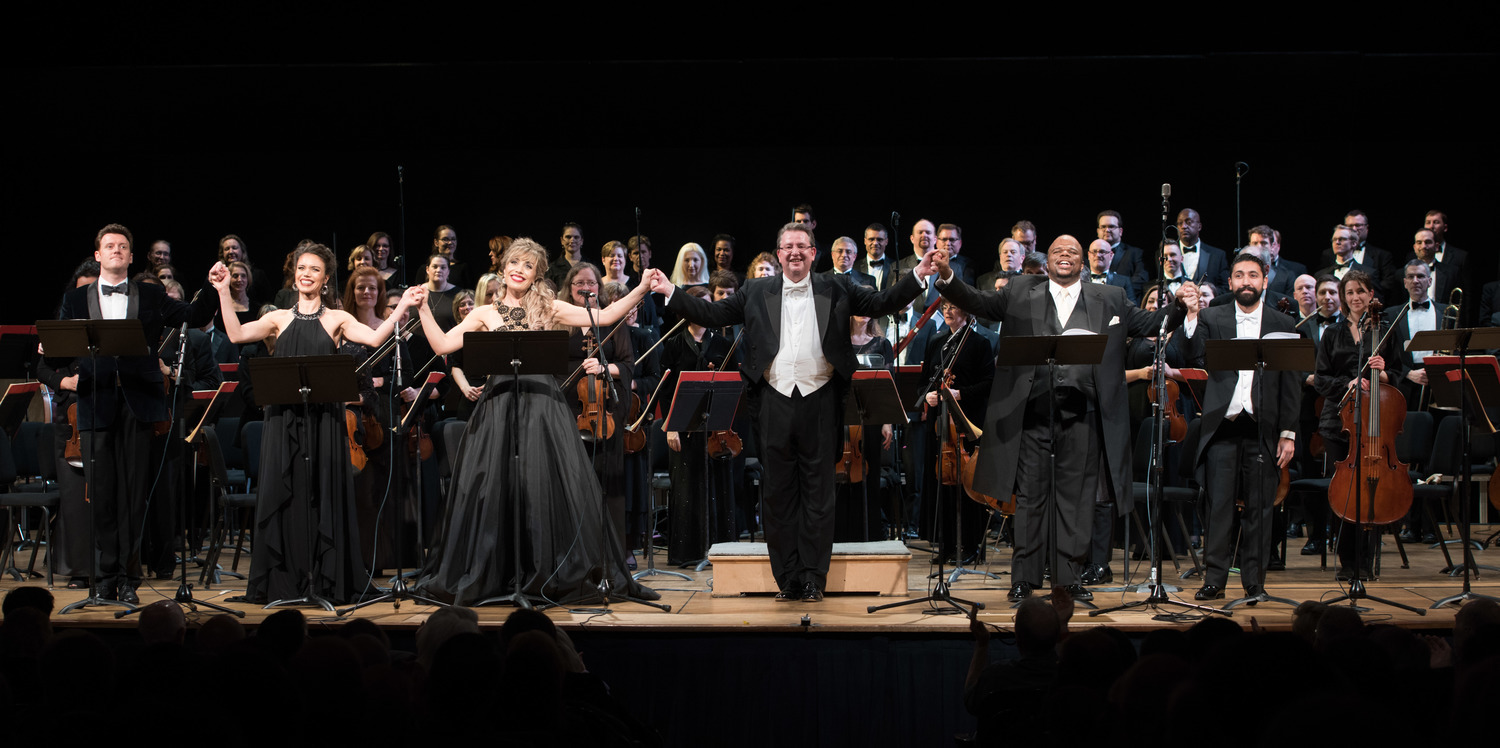Review: MARIA DI ROHAN at Washington Concert Opera

While not entirely rare for a single family to possess multiple musical talents, it's certainly unusual to see two people from the same family as leads in the same performance. Washington Concert Opera's Sunday evening performance of Maria di Rohan was such an anomaly: an opera featuring sisters. Maria di Rohan is a seldom-seen Donizetti gem that bridges the gap between Donizetti's contemporary on the Bel canto scene, Rossini, and the earlier vocal works of Verdi.
The story takes place at the palace of Versailles in seventeenth-century France. Political intrigue and, of course, a love triangle provide the conflict for this story. The titular Maria, played by soprano Marina Costa-Jackson, is in love with Chalais, sung by tenor Norman Reinhardt, but she is also secretly married to the well-meaning Chevreuse, sung by baritone Lester Lynch. Thus, the drama unfolds.
Sunday's performance began with a wonderfully energetic overture-watching conductor and artistic director Antony Walker is as fun and engaging as watching the performers themselves, who had a shakier start to the evening. Both Costa-Jackson and Reinhardt had some difficulty with pitch in their opening arias, which made me wonder if there was some trouble with hearing the accompaniment. However, with Walker's guidance, both found surer footing as the opera progressed.
Costa-Jackson and Reinhardt's voices complement each other well: hers is wide, dark, and rich with piercing high notes while Reinhardt's is lighter and more resonant-an echo of their characters. Maria is an incidental temptress while the Chalais is swept along in the fray.
Armando di Gondì is a pants role sung by Ginger Costa-Jackson. She swept onto the stage and tossed her skirts as if they were a cape. Gondì is a Cherubino-esque character. Costa-Jackson played him beautifully-and got the only laughs of the show. Her acting was spot on and her voice, while more delicate than her sister's, soared through the hall and carried easily over the orchestra as if it were an extension of herself.
Like Cherubino, Gondì gets himself into a bit of a mess. He inadvertently insults Maria, so the Chalais challenges him to a duel. Dueling being illegal in seventeenth century France, the rest of the opera balances on whether or not it will take place and what might happen if it does. (If you enjoy a good duel, then this is the opera for you.)
The principle cast is rounded out by the aforementioned baritone, Lester Lynch, as Chevereuse, whose deep voice and musicality pair well with both Marina Costa-Jackson and Reinhardt, with whom he sings the climactic trio at the end of the third act. (As noted in the program notes, it's in this moment when you can best hear Donizetti's influence on a young Verdi.) Supporting cast included bass Timothy J. Bruno and baritone Efraín Solís.
While it was a generally unpleasant evening for the characters in the story, it was a lovely experience for those in the audience. Maria di Rohan was a strong conclusion to the 2017/2018 WCO season, and I look forward to next year's performances of Gounod's Sapho and Rossini's Zelmira.
Photography by Don Lassell
Reader Reviews
Videos

